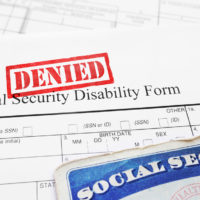Be Careful What You Post Online: Social Security is Watching

Social media has taken over the lives of many people. Facebook, Twitter, Snapchat and Instagram users often post photos and updates on a daily basis. This eagerness to share all the details of one’s life, however, can end up being a costly mistake.
If you have filed a claim with a government agency—such as for unemployment, workers’ compensation, short-term disability or Social Security benefits—then what you say or do can be used against you. Fraud is common with these types of claims. Many people continue to work while collecting benefits, causing tens or even hundreds of thousands of dollars to be misdirected.
To combat this, investigators often follow claimants and look for instances of fraud. But there are now easier ways for government agencies to find fraud: online. Since most Americans use social media nowadays, it’s easier than ever to investigate possible fraud and deny claims.
The Social Security Administration (SSA) and the Office of the Inspector General already use social media posts to look for fraudulent activity. In the budget proposal for 2020, the SSA wants to expand that usage so that social media is used in the very beginning to review disability applications and determine approval.
What Does This Mean for Social Security Disability Applicants?
The biggest issue is authenticating social media profiles. This is especially true when someone has a common last name. How will investigators know they have the right person? Facebook, Instagram, Snapchat and Twitter profiles are not tied to Social Security numbers, which is pretty much all the SSA has to go by. Even though some profiles show a location, solely basing a match on a shared location is not always accurate.
Another thing to consider is that social media profiles do not accurately represent a person’s life. A person who is disabled may not post about their disability and instead post photos of what they did before. Vacation photos may not be recent and it is easy for them to be taken out of context.
If an SSA representative views your profile and tries to deny your claim, the burden will be on you to prove that the posts and photos do not accurately represent your life on a daily basis. You may need witnesses, such as friends and family members, to prove just how disabled you really are. This can lead to delays in the process and there’s no guarantee that your claim will be approved. Therefore, it’s best to avoid social media in the first place.
Learn More About Social Security Disability Benefits
Government agencies have been using social media for many years to investigate claimants. The fact that Social Security employees will be looking at your profiles online should come as no surprise. For best results, it’s a good idea to limit your social media use or not post anything at all.
If your Social Security Disability benefits have been denied, seek legal help from The Law Office of Michael Lawrence Varon. He understands that social media is not always an accurate look at someone’s life and can help appeal your claim. Schedule your free consultation today with a skilled White Plains Social Security disability lawyer by calling 914-294-2145.
Resource:
hcbsnews.com/news/social-security-disability-benefits-your-facebook-instagram-posts-could-affect-your-social-security-disability-claim/
https://www.nycompensationlaw.com/how-is-disability-defined-by-social-security/
